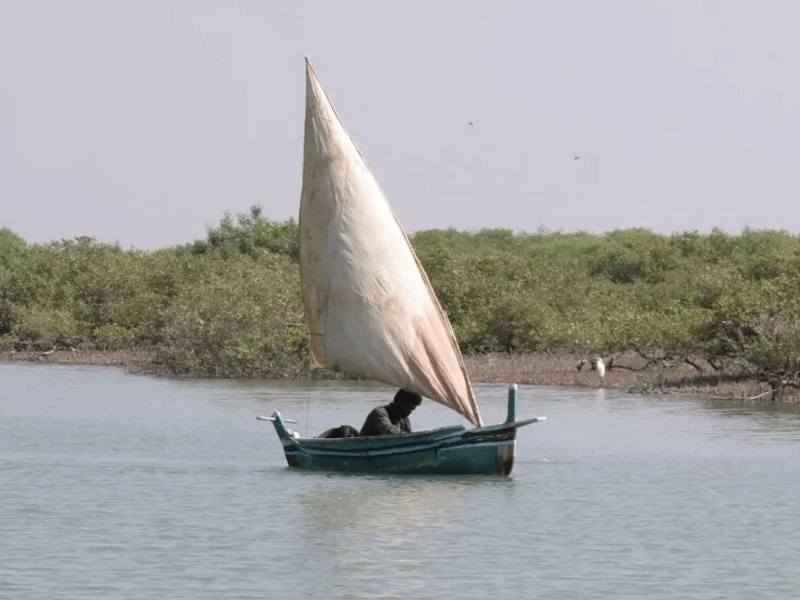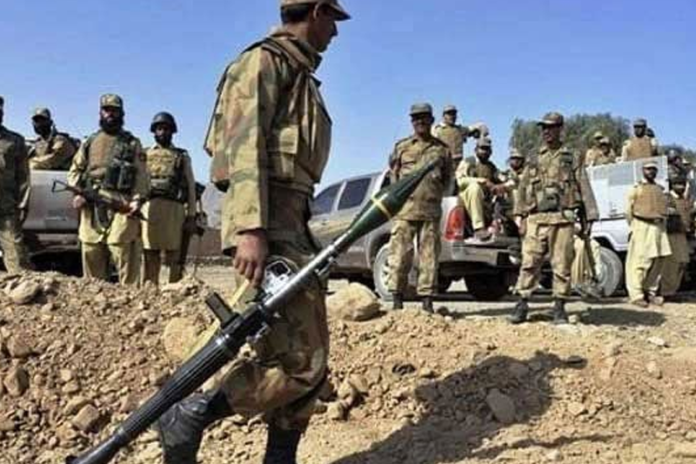Repercussions of fading ecology in Indus Delta

- 289
- 0
The fading ecology in the Indus Delta requires emergent action as due to sea intrusion, the human beings and the animals are losing land and livelihoods in this once lucrative farming strip. There used to magnificent farming activities on the Indus Delta in the past, but that practice is diminishing fast and the situation is having serious repercussions and perils upon local population and the wildlife as well.
According to findings of an extensive research by U.S.-Pakistan Center for Advanced Studies in Water (USPCAS-W), at Mehran University of Engineering and Technology, Jamshoro, the Indus delta has shrunk by a massive 92 per cent during the last one and half century and the complex process which is the manifestation of climate change is still going on.
Few years ago, the issue was subject of debate at the National Assembly but no effective mechanism came to the fore in this regard as the Ministry on Climate Change and Environment during the IK government never prioritized the effects of Climate Change on our land.
However, the current government needs to focus on this issue and one would appeal to the Climate Minister Sherry Rahman to look into this very serious matter.
Such is the effect of climate change on Pakistan that the Arabian Sea has eaten up the country’s two cities along the coastal belt and is eating up almost 100 acres of land on a daily basis.
As per available reports, the two tehsils of District Thatta, i.e. Kharo Chan and Keti Bander, have almost been eliminated from the planet in the past three decades and now only a few thousand fishermen reside along the coastal belt of Keti Bander and Kharo Chan, who too have been badly hit by food insecurity.
According to Pakistan Fisherfolk Forum, the sea erosion has not only submerged the two cities but has also destroyed fertile lands measuring approximately 1.5 million acres in Districts Thatta and Badin. The sea has eaten up about 3.5 million acres of land since the 1980s and is eating up about 100 acres on a daily basis.
The issues regarding sea erosion are contributing a lot to ever-depleting marine life.
Meanwhile, the massive cutting of mangroves is also causing a similar situation in Karachi, and the marine life has depleted, thus causing issues of food security as well.
As unabated sea intrusion continues to devour valuable land and snatch livelihoods of farmers in the coastal districts of Sindh, experts and stakeholders have called for an immediate multi-pronged approach to overcome this menace. The intrusion has also turned fresh aquifers brackish and affected the ecosystem of the delta.
One would agree with PPP leaders , who were recently quoted to have said at a seminar that Sindh will not withdraw its demand for allocation of 10 million acre-feet (MAF) of water from Indus River for the Indus delta, according to the 1991 water accord. Speaking at a seminar, they said that under the accord, the Indus River System Authority is stipulated to release 10 MAF in the downstream of the Kotri Barrage towards the sea to stop the intrusion. However, citing shortage of water in the river, the required or a larger amount of water is only discharged during the flood season.
Due to non-implementation of the accord, the required water isn’t released in the downstream of the Kotri Barrage.
In the past, the Federal government acknowledging magnitude of the problem, announced at a public meeting in Thatta that a sea embankment to protect Thatta, Sujawal and Badin will be built. But after passage of so many years, no concrete work has been done.
Although a feasibility study for the project has yet to be carried out, the seashore is estimated to be spread over around 200 kilometres.
Meanwhile, there is also a sharp reduction in the amount of silt - a river sediment - in the Indus owing to a substantial decrease in the water flow. This has also led to a reversal in the delta building process, for which the river sediment is quintessential.
The threat is very serious and immediate attention is required through a focused approach.
Meanwhile, experts have also pointed out the vulnerability of the coastal areas due to cyclones and an absence of disaster mitigation measures. It may be recalled that the 1999 cyclone wiped out 73 villages, killed 168 people and displaced over half a million people in Thatta and Badin. In last century four cyclones have hit the province’s coast.
The fresh groundwater in the villages along the coastline and near the river is fast becoming brackish.
Many villages in recent years have been evacuated because freshwater aquifers have become saline. Water-borne diseases among the people have also risen significantly.
Experts while expressing serious concern at the accelerated rate with which the most fertile lands of Badin and Thatta districts are being eroded by the sea water, have called for a fresh policy on this issue.
They pointed out that Inter Provincial Water Accord 1991 recognised that there is need of escape of sufficient quantities of water downstream of Kotri to check sea erosion.
It has been more than 25 years since the accord but the sea continues to devour our coastal villages and most fertile lands. Indus River System Authority which was authorized to implement the water accord has not been able to determine that sufficient quantity of downstream Kotri flow of water. There are different figures provided by different researchers, but one thing is for sure and what we know for sure is and Sindh peasants are seeing with their own eyes the fact that sea waves are advancing on lands where just a few years back lush green crops and fruit orchards were a common scene.
Published in The Daily National Courier, April, 28 2023
Like Business on Facebook, follow @DailyNCourier on Twitter to stay informed and join in the conversation.

















































